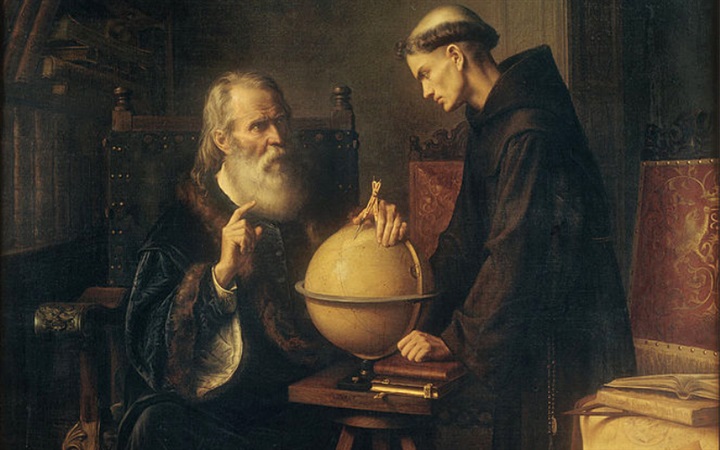ADVERTS
Galileo Galilei was born in 1564 in Italy. His natural interest in mathematics and physics frustrated the career in medicine envisioned by his family for young Galileo.
His first scientific work was in Pisa, his hometown. A local church worker hung a light bulb on a long rope. When the luminous pendulum was released and began to move, Galileo compared the movement to the beating of his heart.
ADVERTS

Scientific work
The oscillation time between the two was equal, and this generated the “isochronism” of the pendulum. This led Galileo to create the first prototype of something similar to a clock, serving in some way to measure time.
Another of Galileo's experiences was in Pisa, but this time in the famous Tower. From above, he threw two objects with different weights. In this way he would contest Aristotle, because in Galileo's experience the two objects, one being heavier than the other, reached the ground at the same moment.
Galileo even released a book, in Italian called “Saggiatore”, which in the Portuguese translation is called “Experimentador”. The material presents mathematical arguments to elaborate the exact sciences.
Galileo's work with physics was done with the use of levers, planes, screws, hammers and other simple tools. As an inventor, he attracted attention when he assembled equipment that we still use today, such as binoculars, thermometers, hydrostatic balances and geometric compasses.
Astronomical discoveries
ADVERTS
After making the binoculars, he developed something more powerful, which could make astronomical discoveries. Having created the most modern telescope of all time, he began to study the heavens.
He then began to explore the constellations such as Pleiades, Orion, Cancer and the Milky Way. His findings in the universe are archived in the book “Siderus Nuntius”, whose translation into Portuguese is “Messenger of the Stars”.
The price of so much time with his eyes on astronomical equipment resulted in him becoming blind. His astronomical knowledge was not well liked by the Church, as Galileo began to preach that the Earth was not the center of the Universe. For this reason, he suffered retaliation, and at times he had to isolate himself from society. Ultimately, he was acquitted by the Church.
Galileo died on January 8, 1642.
